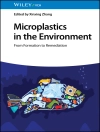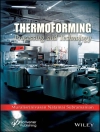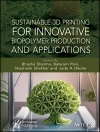Nitric oxide is a highly potent regulatory molecule with great pharmaceutical potential. This handbook fills a real gap in combining the chemistry of nitric oxide releasing substances with their practical applications in biology and drug design. It covers all classes of nitric oxide donors, from organic nitrates to nitroso compounds, guanidines and metal-NO complexes.
In addition to a detailed treatment of the chemistry of NO donors, numerous examples of successful diagnostic and pharmacological applications are discussed, as well as further therapeutic targets for these substances.
Зміст
CHEMISTRY OF NO DONORS
NO and NO Donors
Organic Nitrates and Nitrites
N-Nitroso Compounds
The Role of S-Nitrosothiols in the Biological Milieu
Metal-NO Complexes
NO Releasing Heterocycles
C-nitroso compounds, Oximes, N-hydroxyguanidines and N-hydroxyureas
NO DONORS’ APPLICATIONS IN BIOLOGICAL RESEARCH
Vasodilators for Biological Research
NO Donors as Antiplatelet Agents
Control of NO Production
CLINICAL APPLICATIONS OF NO DONORS
NO Donors in Cardiovascular Disease
NO Donors as Anti-Platelet Agents for thromboembolic disorders
NO and Gene Regulation
NO and Central Nervous System Diseases
Про автора
Peng George Wang obtained his B.S. degree in Chemistry from Nankai University, China in 1984 and his Ph.D. degree in organic chemistry from the University of California, Berkeley in 1990. He then conducted postdoctoral research at the Scripps Research Institute and in 1994 became an Assistant Professor at the University of Miami. From 1997 to 2003, he was a faculty member of Wayne State University. In 2003, he took his current position in the Departments of Biochemistry and Chemistry as Ohio Eminent Scholar in Macromolecular Structure and Function at the Ohio State University.
In 2002, Professor Wang has won the Isbell Award from the Divison of Carbohydrate Chemistry of the American Chemical Society.
Tingwei Bill Cai is a research assistant in Professor P. G. Wang’s group at The Ohio State University. He studied chemistry at Peking University in China, where he completed his BS and MS degree in Medicinal Chemistry. Then he worked in National Institutes of Pharmaceutical Research & Development as a research scientist. In 2000, he joined Professor Wang’s group. His main research focuses on drug design and synthesis. His research field covered carbohydrate, nucleic acid, heterocyclic and nitric oxide chemistry. He has published more than ten scientific papers. He is a member of American Chemical Society.
Naoyuki Taniguchi graduated from the Hokkaido University School of Medicine, followed by an M.D. degree in 1967, and completed the doctoral course of medicine at the Graduate School of Hokkaido University and obtained a Ph.D in 1972. He was then appointed assistant professor at the Hokkaido University School of Medicine in 1975 and was a visiting professor in the group of Dr. Alton Meister at Cornell University Medical College between 1976 and 1977. Returning to Hokkaido University, he joined the Biochemistry Laboratory at the Cancer Institute, before being appointed as a full professor at the Department of Biochemistry, Osaka University Medical School in 1986. Professor Taniguchi is an honorary member of the American Society for Biochemistry and Molecular Biology and has received numerous awards, among them the International Glycoconjugate Organization (IGO) Award in 2001.












